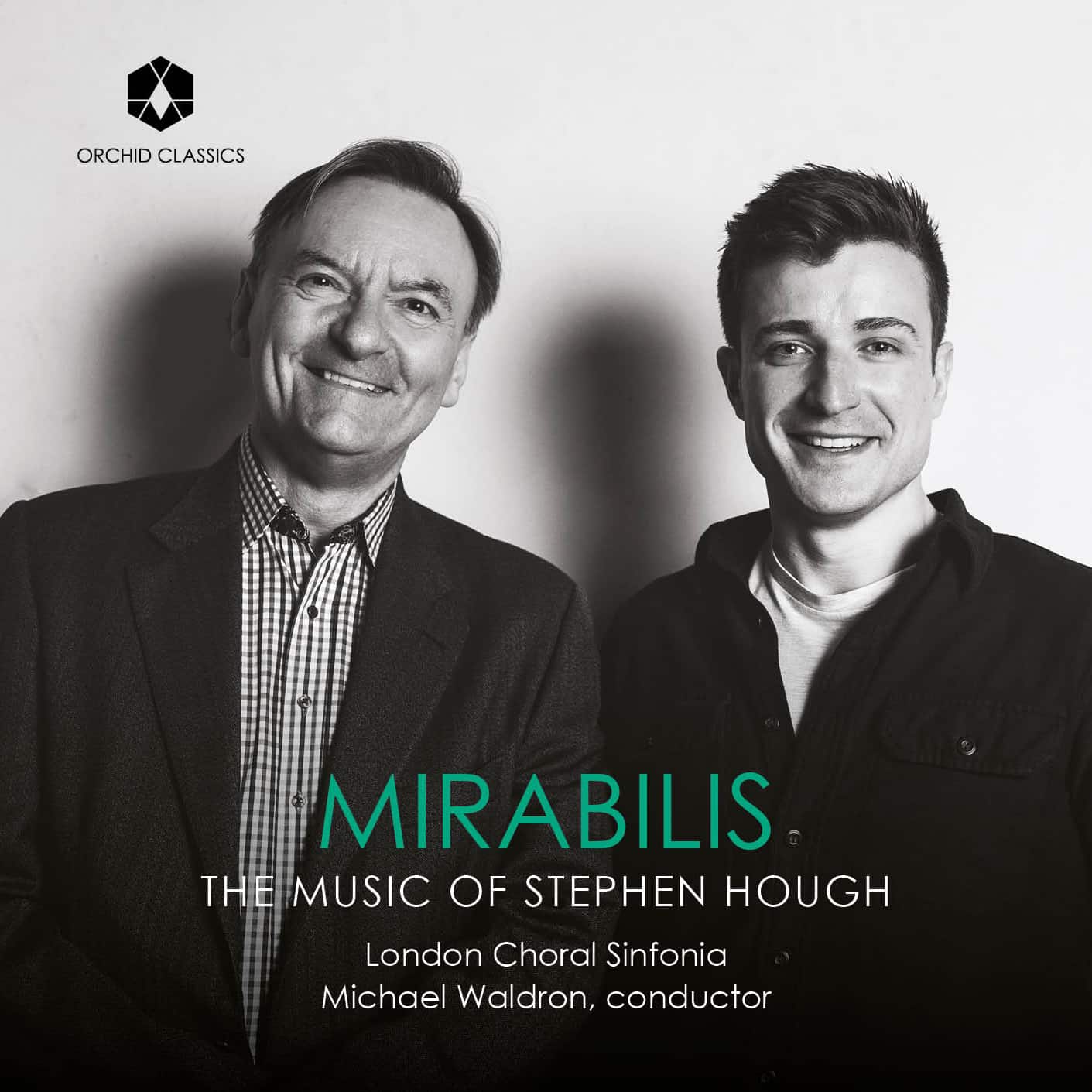Stephen Hough’s singing album
NewsThe pianist Sir Stephen Hough has a choral album coming out in a couple of months.
Here’s an extract from his sleeve notes:
The main work in this recording is my Missa Mirablis (2007), a commission from Martin Baker for Westminster Cathedral Choir. The central idea, and the central movement, is the Credo – perhaps the most problematic text to set because of its length and the non-poetic nature of the words. But instead of setting it in a descriptive way I wanted to explore aspects of the psychology underlying the nature of belief … and doubt. I divide the lower and upper voices, as if innocence from experience, and only the former actually sing the word ‘Credo’, constantly interrupting the fast-paced mutterings of the tenors and basses. What at first is an encouragement to believe becomes a despairing cry as the pattered rote of the lower voices turns into defiant unbelief. Only baptism is declaimed with any sense of conviction – a last hope dashed as the final clauses about resurrection and eternal life fizzle out. A final ‘Credo’ is sung an octave lower by the upper voices – quietly, as if tired and shattered from their earlier, futile exertion.
Before this drama unfolds, the Kyrie movement has introduced us to a gentler, less complex world of forgiveness, where the melodic and harmonic material is sweet and consoling. The Gloria, joyful in its outer sections, is based on a rising scale and a falling zigzag motive. The Sanctus and Benedictus aim to contrast the divine and the human – the angelic ‘Holy, Holy, Holy’ is grand, vast, immense, whereas in the Benedictus God has become human and the music is deliberately and sentimentally intimate, as if two people are sharing a drink in a Parisian café, with a whiff of a 1950s pop tune coming from a neighbouring café’s jukebox.
The Agnus Dei takes the ‘Credo’ motive and develops it in plaintive, unaccompanied chords. When the ‘Lamb of God’ words appear for the third time the expected response is ‘Grant us peace’. But instead of peace the organ begins an interlude of mounting agitation and desperation based on chromatically altered fragments of the opening vocal chords. As this passage reaches its highpoint, with still no sign of ‘Dona Nobis Pacem’, the choir sing a fortissimo ‘Agnus Dei’ to the music which had accompanied the baptism clause in the Credo. Finally, as a climax to the whole work, the ‘Dona Nobis Pacem’ is sung. The spell has been broken and all gradually becomes calm. The piece ends musically as it began with the same melody of consolation as the Kyrie, as if the Lamb of God has brought the piece to peace, a full circle embracing and healing all creation.
And why ‘Mirabilis’? Purely personal. In September 2006 I gathered together a year’s-worth of sketches for this Mass and wrote three of the movements in three days. The following day I had a serious car crash, overturning on the motorway at 80 mph. I stepped out of the one, untouched door in my completely mangled car with my Mass manuscript and my body intact, then wrote part of the Agnus Dei in St. Mary’s Hospital, waiting for four hours for a brain scan. I was conscious, as I was somersaulting with screeching metallic acrobatics on the M1, of feeling regret that I would never get to hear the music on which I’d been working so intensely in the days before. Someone had other ideas.






Remarkable, look forward to hearing.
80 mph? Tut, tut! He should have said 77 mph, in case the fuzz reads this article.
Always pays to have a second string to your bow. Sir Stephen’s presence as composer continues to gather momentum. I note there are a few performances at Wigmore Hall next season.
Hough has at least four strings: pianist, composer, writer, painter. And he is excellent on all four.
“and only the former actually sing the word ‘Credo’, constantly interrupting the fast-paced mutterings of the tenors and basses. ”
sounds like Beethoven already did…
Great story. I’m glad he was able to bring his creation to fruition.
Did you get to hear it sung by the wonderful Westminster Cathedral Choir before Martin Baker l eft?